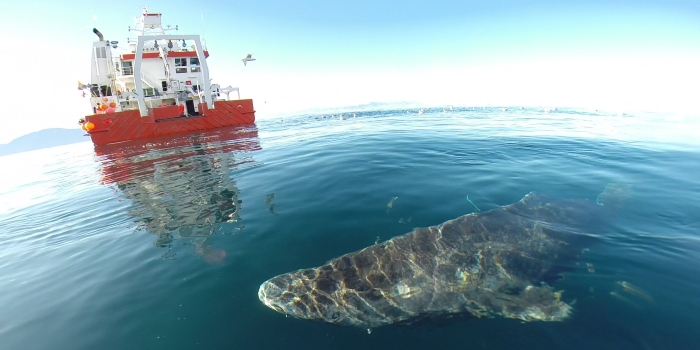Podcast: Play in new window

BOB HIRSHON (host):
The world’s oldest predator. I’m Bob Hirshon and this is Science Update.
In the frigid waters of the North Atlantic, Greenland sharks move so slowly, scientists think they wait for their prey to fall asleep before leisurely attacking. Now, their unhurried lifestyle has earned them top honors as the world’s longest-lived vertebrate, according to the journal Science. Using radiocarbon dating, University of Copenhagen marine biologist Julius Nielsen and his team calculated that the most senior shark they studied was just a few years shy of her 400th birthday.
JULIUS NIELSEN (University of Copenhagen in Helsing):
And I think it’s the combination of a very very big body size and then also very low body temperature.
HIRSHON:
Nielsen says the sharks don’t even reproduce for the first time until they’re more than 150 years old, which could put their population at risk since they can’t replace themselves quickly. I’m Bob Hirshon, for AAAS, the science society.
Story by Susanne Bard
